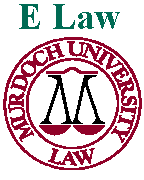

Computer Technology and Legal Discourse: The Potential for Modern Communication Technology to Challenge Legal Discourses of Authorship and Property
AbstractMany individuals hold the view that authorship is lost on the net. With the rapid transfer of information and the chaotic nature of internet communication, it becomes difficult to track an author if indeed the name of one ever appears. This authorless move challenges notions of intellectual property and authorship that have long been cornerstones of our legal system. In this paper I wish to argue that modern communications technology gives us an opportunity to again confront the debate over authorship and intellectual property that has its roots in the 18th century. I argue that while this debate is certainly not new, the infusion of the hyper-reality of internet and virtual communication bring us to a point in which a more radical challenge to intellectual property monopolies and the corresponding concept of the proprietary authorship can be examined. First, I wish to trace the 18th century debates on copyright and the emerging notion of the proprietary author to indicate how transformative this debate has been. Second, I wish to look at the emerging legal discourse on computer technology and how it affects the technology's development and use, pointing out the interesting parallels between the 18th century debates and our own. Finally, I will examine what is obscured by this discourse and the possibilities for redrawing the line between property and authorship on the one side and the collective good on the other. I will attempt to answer the following questions: How does our perspective of computer technology differ when seen through a legal as opposed to a "hacker" discourse? What is obscured or made natural by each discourse? How do people use a discourse about computers to create ownership and authorship and how do others challenge this discourse? Finally, what are the alternatives? |